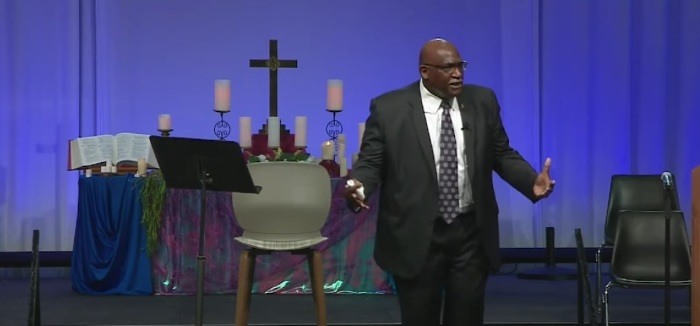172 UMC congregations in Ohio disaffiliate amid LGBT schism

Over 170 United Methodist Church congregations in Ohio had their dissafiliation votes ratified this weekend as they seek to leave the second-largest Protestant largest denomination in the United States amid deep theological disagreements over LGBT issues.
The Western Ohio Conference of the UMC, which oversees congregations mostly west and south of Columbus, voted to allow 172 out of approximately 960 congregations to disaffiliate at the 2023 West Ohio Annual Conference over the weekend.
"Our calling is to serve this present age, even if there's a storm … in the midst of passing over. One of our storms is disaffiliation," Bishop Gregory V. Palmer said in a statement.
"That's not a blame thing; it's just the way it is. It's in the book. We've given a lot of attention to it. Let me be clear. It is not our mission. We gave attention to it. We'll finish up what there is to be finished up. But it is not Jesus' mission. It's not the mission of The United Methodist Church. It's not Greg Palmer's mission, and it's not your mission. We've got one mission: Make disciples of Jesus Christ for the transformation of the world. "
The approval follows the disaffiliation of 80 congregations from the conference during a special session last year.
"I bid the 172 churches that have departed our communion the best," Palmer said. "My focus will continue to be on a vibrant future for the West Ohio Conference of The United Methodist Church and its more than 700 churches."
Over the past several years, the UMC has been embroiled in a divisive debate over whether to change its official stance labeling homosexuality "incompatible with Christian teaching," which includes a ban on the blessing of same-sex unions and prohibiting noncelibate homosexuals from becoming clergy.
As some theological liberal leaders within the denomination have refused to enforce the Book of Discipline's stance on the matter, thousands of theologically conservative churches have disaffiliated from the denomination, with some joining the newly-formed Global Methodist Church or becoming nondenominational.
"We all believe that gay people are worthy of Christian love. We don't agree on how to do that," Brian Straub, an ordained pastor in the Global Methodist Church, as quoted by Dayton Daily News.
Brian Straub, president of the West Ohio Wesleyan Covenant Association, which helps churches disaffiliate from the UMC, said that while the disaffiliating churches believe "gay people are worthy of Christian love," there is disagreement over "how to do that."
Despite the emotional turmoil and the financial obligations associated with disaffiliation, Straub told Dayton Daily News that the process in Ohio had been smoother compared to other regions. He credited the leadership of Bishop Palmer for this relative ease.
Paragraph 2553 of the UMC Book of Discipline, set to expire at the end of 2023, allows U.S. congregations to disaffiliate from the denomination over the debate if they meet specific financial and procedural requirements.
In some cases, church votes to leave the UMC have been rejected by regional bodies.
In December, the First United Methodist Church of Jonesboro, Arkansas, filed a lawsuit against the Arkansas Conference after the conference voted to reject the church's disaffiliation and suspended its pastor.
First UMC was among three congregations that had their disaffiliation voters rejected by the conference in November, although it approved the disaffiliation requests of 35 other congregations.
Last July, 106 churches filed a lawsuit against the UMC Florida Annual Conference, claiming that it requires departing congregations to pay a "sum of money" to retain control of their church properties.
During the legal proceedings, however, 35 churches eventually left the lawsuit to pursue the disaffiliation process, with a judge ruling in favor of the Florida Conference in April.
According to numbers compiled by UM News, as of Monday morning, the UMC has approved 4,359 disaffiliations across the United States since 2019, the vast majority of which have happened since last year.





























